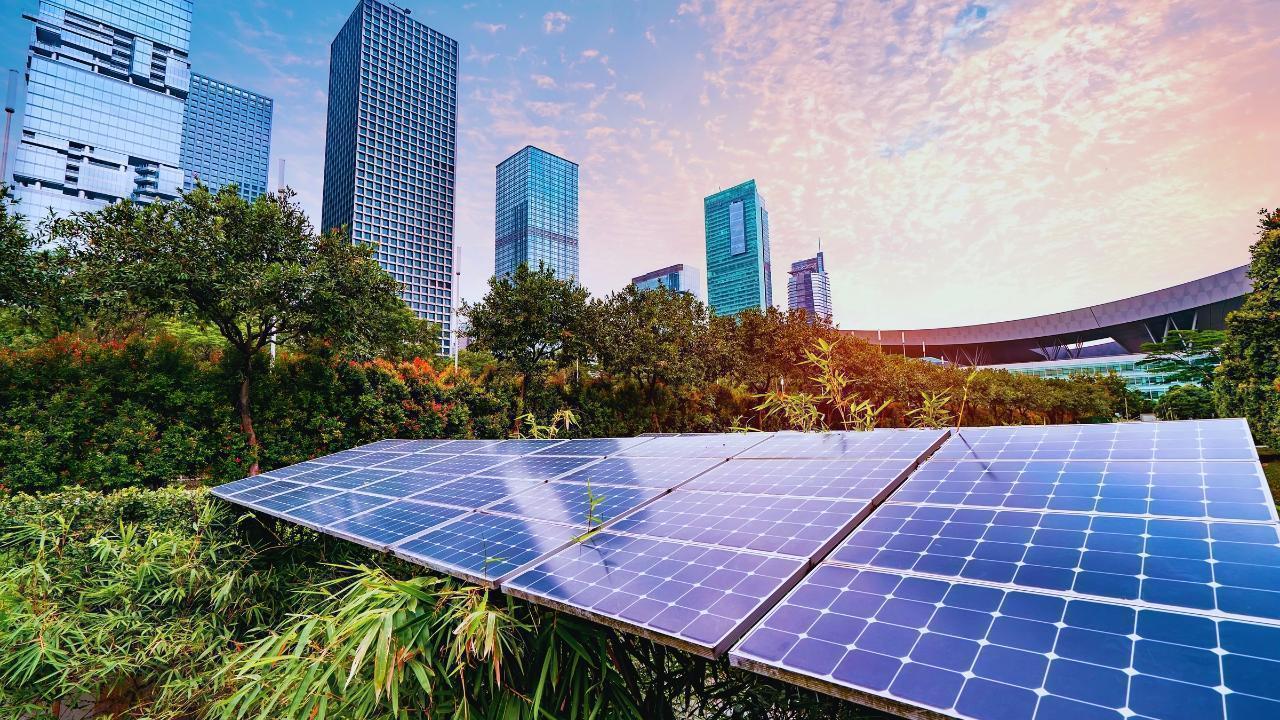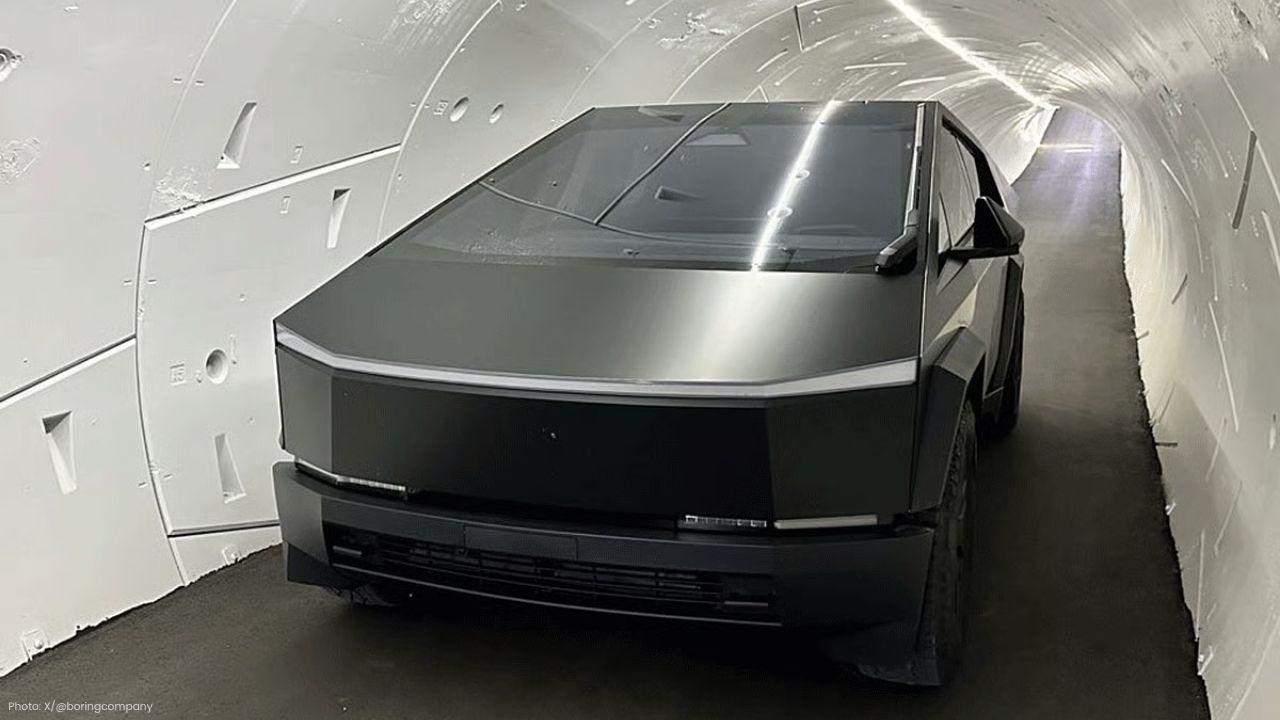
Post by : Anees Nasser
The world is witnessing an unprecedented push toward sustainability as climate change becomes one of the most pressing challenges of our time. The global community is no longer just discussing environmental issues—it is actively investing in solutions to combat them. From renewable energy to smart agriculture, innovations in green technology are reshaping the way we live, produce, and consume. The race for green tech dominance is not only about saving the planet but also about securing economic growth in the future. This transformation is being driven by the urgent need to reduce carbon emissions and minimize the ecological footprint while ensuring that development continues to thrive.
The stakes have never been higher. According to leading climate reports, the planet has already warmed by more than 1°C since pre-industrial times, and we are on track to hit dangerous thresholds if drastic measures aren’t implemented. Traditional industries that rely heavily on fossil fuels have contributed to soaring greenhouse gas emissions, triggering more extreme weather patterns, rising sea levels, and biodiversity loss. Green technology is emerging as a game-changer in this scenario, offering scalable solutions to tackle these global issues. Unlike short-term fixes, green innovations focus on creating long-term resilience, ensuring future generations inherit a livable planet.
At the heart of the green tech movement lies renewable energy. Solar, wind, and hydropower technologies have evolved dramatically in the last decade, making them more affordable and accessible than ever. Countries like Denmark and Germany are setting global benchmarks by integrating a significant percentage of their electricity grids with renewable sources. Meanwhile, developing nations are also jumping on the bandwagon, leveraging solar power to electrify remote areas without traditional infrastructure. Breakthroughs in battery storage are further accelerating this transition, allowing renewable power to be stored and used efficiently even when the sun isn’t shining or the wind isn’t blowing.
One of the major contributors to greenhouse gas emissions is the transportation sector. Electric vehicles (EVs) are becoming the new normal as governments push for stringent emission norms and offer subsidies to accelerate adoption. Giants like Tesla have already changed public perception, and now almost every major automaker has an electric lineup in progress. Beyond EVs, innovations in public transportation systems—such as electric buses, hydrogen fuel cell trains, and smart bike-sharing networks—are revolutionizing urban mobility. The shift to cleaner transport is not just reducing emissions but also lowering dependence on oil, which has long dominated global geopolitics.
Green technology isn’t limited to transportation and energy—it extends to how cities function and how we live. The concept of smart cities integrates technology with sustainability to create urban areas that are energy-efficient, waste-conscious, and people-friendly. From intelligent energy grids and green buildings to efficient water management systems, smart cities are reducing environmental impact while improving quality of life. The integration of Internet of Things (IoT) devices plays a critical role in optimizing energy usage, monitoring pollution levels, and ensuring better waste disposal systems.
Agriculture accounts for a significant share of global emissions and resource consumption, but technology is helping to make farming greener. Vertical farming, precision agriculture, and AI-driven crop management systems are enabling farmers to grow more food with fewer resources. These technologies not only reduce water usage but also minimize pesticide application and soil degradation. Startups in this space are leveraging drones for crop monitoring and deploying data analytics to optimize yields. This approach is crucial for feeding a growing population without further straining the planet’s ecosystems.
Waste has long been one of the most overlooked environmental problems. Green innovation is now making it possible to recycle, repurpose, and reduce waste at an industrial scale. The concept of a circular economy focuses on eliminating waste by reusing resources and extending the life cycle of products. From biodegradable packaging to advanced recycling technologies that convert plastic waste into fuel, the possibilities are endless. Companies worldwide are investing in solutions that not only manage waste effectively but also create profitable business models from it.
The private sector is playing a pivotal role in the green tech revolution. Environmental, Social, and Governance (ESG) principles are now central to business strategies, and companies that ignore them risk losing investors and customers alike. Tech giants like Google, Microsoft, and Apple have committed to achieving carbon neutrality in the coming years. Beyond pledges, these companies are funding research in green hydrogen, carbon capture, and renewable energy projects. Startups are also entering the green tech space with innovative solutions, attracting significant venture capital as sustainability becomes a top investment priority.
Despite the impressive progress, the green tech race is not without hurdles. High upfront costs for renewable infrastructure, lack of skilled manpower, and policy uncertainties in some regions remain major obstacles. Moreover, the shift from fossil fuels to clean energy is disrupting traditional industries, leading to job losses and economic challenges in oil-dependent economies. Addressing these issues requires strong global cooperation, favorable policy frameworks, and public awareness. Without a coordinated effort, the transition to a green economy may slow down, delaying the much-needed climate action.
The trajectory of green technology is clear—it will define the economic and social landscape of the 21st century. Countries that lead in green innovation will not only mitigate the effects of climate change but also secure economic advantages in emerging sectors like renewable energy, electric mobility, and sustainable agriculture. The race is on, and every breakthrough brings us closer to a cleaner, safer, and more sustainable future. Green technology is not just an environmental solution; it’s the blueprint for a thriving global economy that respects planetary boundaries while embracing growth.
This article is for informational purposes only and does not serve as professional environmental or investment advice. Readers are encouraged to conduct their own research and consult experts before making decisions related to sustainability or technology investments.










NBA Friday Recap: Powerhouse Wins for Miami, LA, Milwaukee, and Clippers
Miami, LA Lakers, Milwaukee, and Clippers triumphed in a thrilling NBA Friday, showcasing standout p

Doncic Shines with 49 Points in Lakers' 128-110 Victory over Timberwolves
Luka Doncic dazzles with 49 points as the Lakers secure a 128-110 win against the Timberwolves, show

Kings Triumph Over Jazz 105-104 with Last-Minute Sabonis Effort
The Sacramento Kings edged out the Utah Jazz 105-104, with Domantas Sabonis making the decisive shot

Argentina's Friendly Match Against India Delayed, New Date to be Announced
The friendly match between Argentina and India in Kochi has been postponed due to FIFA approval dela

Rohit and Kohli Conclude ODI Journeys in Australia with a Victory
Rohit Sharma and Virat Kohli bid adieu to Australian ODIs with a final win, forming a 168-run partne

George Russell's Wrestling Mask Antics at Mexican Grand Prix
George Russell donned a wrestling mask to enjoy the Mexican Grand Prix from the stands, providing a